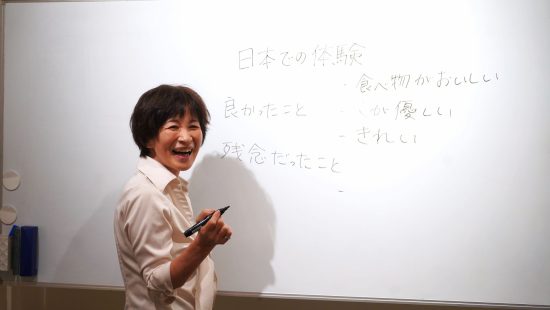|
The Daily Life of My Study Abroad Program in Japan

Since the local government stated a goal of accommodating up to 300,000 foreign students by 2020, studying in Japan is now more affordable for international students.
They established new financial aid initiatives for overseas students, including grants and scholarships from the Japan Student Services Organization (JASSO) and the Ministry of Education, Culture, Sports, and Technology (MEXT). With the influx of government assistance, Japanese colleges are concentrating on simplifying the life of the students, from the admission process to finding a job after graduation.
In Japan, there are over 780 universities, 80 percent of which are private. With careful evaluation of their prerequisites, all of these colleges provide programs and accept students from outside. Prepare yourself better for life as an international student in Japan if your prerequisites are now met.
Daily Life of an International Student While Attending School in Japan
Japan’s universities are home to a wide variety of international students. Some people pursue their education at Tohoku University, while others go to Kyoto University or the University of Tokyo. Depending on the institution they are attending, students have different timetables and commuting times. However, have you ever thought what their everyday schedule entails?
You’ll be forced to adjust to the culture if you study abroad in a different nation. Particularly if you don’t speak Japanese well, your first few weeks as an international student may be a little difficult. Here is a description of an international student’s typical day in Japan to assist you in adjusting to these adjustments.
Early Activities
For most overseas students, the daily routine consists of getting up around 6:00 am, having breakfast, traveling to the university, and attending courses until midday. For example, an international house stay student (a student who resides with a host family during their studies) often wakes up around 6:00 am. Before taking a bath, they often fix their futon, a Japanese bed. They get ready for school by having a shower before doing so. Breakfast is often provided and cooked by their host family.
However, a normal day for an international student living in a dorm begins between 6:30 and 7:00 am. After waking up, they take a bath before getting ready for school. Some dorms give breakfast, whereas others don’t. The majority of the time, college students who live in dormitories have breakfast at a neighboring restaurant or at the campus cafeteria. When the weather is nice, international students commute to class by bicycle or walking. However, they choose to ride trains and buses when it is pouring.
Classes in the mornings at several institutions, including Kyoto University, begin between 9:00 and 9:30 am and conclude around noon. These courses often include Japanese language and culture. Depending on the course a student chooses, it may last up to three and a half hours.
Midday Activities
At noon, morning courses are over, giving pupils only enough time to have lunch. Some overseas students prepare their meals at home and pack a lunch before heading to class, but the majority eat at the university canteen or cafeteria. There is a broad variety of Japanese cuisine available for pupils to consume at school cafeterias, including udon and ramen. Both native and foreign students interact with one another while eating during lunch.
Afternoon Activities
Classes resume after lunch. At 13:00, most Japanese universities begin their second day of courses. Depending on the courses a student choose, lectures may go till 8:00. As long as their chosen class schedules align with the university’s listed calendar of topics, international students are free to choose their class schedules when they enroll. Major classes and topics are often covered in the afternoon.
When they don’t have lessons, many foreign students utilize this time to undertake research or to hang out with friends and swap tales. Some students want to schedule all of their classes on one day so that they may have more free time the rest of the week.
The majority of students use their free time to meet up with friends outside of class and travel throughout Japan after attending courses or doing research. Others choose to spend a bit more time studying at public or academic libraries.
Evening Activities
A few students like to exercise in the evenings by cycling, going to the gym, or going for jogs outside, but only after changing into clean clothing at home.
Homestay students have a meal with their host family at dinnertime, while dorm residents either dine out or prepare their own meals. Around 19:00 is when most international students have supper. However, some students work on research assignments until 19:30, then leave for home at 20:00 and have supper there.
In addition to watching TV or playing games with friends and roommates, many students go out after supper to study or do their schoolwork in coffee shops and public libraries. Following their daily activities, kids often take a nap before having a bath or getting dressed. To get adequate rest for the events the following day, most students go to bed between 21:00 and 22:00.
Conclusion
A foreign student’s life in Japan is filled with difficulties, experiences, sacrifices, and good moments. Let this brief summary of the day’s events work as a guide for you when you encounter some likely scenarios. But keep in mind that your experience won’t exactly match up with any of these circumstances. It will always differ according on the school you want to attend, your location, and your financial situation.
Visit our website to read our articles on which schools to choose and where to study in Japan if you want more in-depth information on what it’s like to be a student there. You will always be in charge of and make the choices in your student life. Enjoy yourself while studying the teachings of life and education, never forget that.






